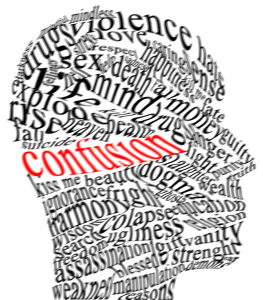
11 Jun Schizophrenia
Schizophrenia is a mental illness that is characterized by a loss of touch with reality, trouble maintaining daily schedules/motivation/personal hygiene, as well as trouble understanding information they are given to make decisions with. Schizophrenia is a very serious illness that is still not completely understood. We still aren’t 100% certain what causes it, whether it is a combination of genes and environment, or possibly just a chemical imbalance. What we do know for sure is just how devastating it can be when left untreated. Joblessness, homelessness, and even addiction are common among those who have untreated schizophrenia. It is so important that it is caught early and managed as it does not take very long for someone to lose control.
Although each and every case is different, there are some symptoms that are common between cases. Common symptoms include:
- Hallucinations: Hallucinations are anything that no one else can see, hear, smell, or touch that the person with schizophrenia is experiencing. These hallucinations vary from person to person, but the more common type of hallucination is voices. These voices will talk about the person, or warn them about danger, or tell them to do things to themselves/others (that are often times harmful). It can be quite some time before the hallucinations are noticed as the person having them will respond internally to them. Until they either talk about the hallucinations or outwardly respond to them, they are undetectable.
- Delusions: Delusions are beliefs that are untrue about people/places/events. These delusions can vary greatly, but more common delusions are that someone is hurting them (i.e. through poisoning, controlling their mind/body, plotting against them in some way, etc.) or that they are someone they are not (i.e. someone famous/well-known).
- Disorganized appearance: Those who are suffering from schizophrenia have a hard time taking care of themselves because they either forget or are focusing more on the things that are going on in their heads. They may have poor personal hygiene, live in less than healthy conditions, or they may even appear to be homeless. They can become very sickly looking if they are refusing to eat because they think they are being poisoned, and they can also look very tired/stressed if they are losing sleep due to their hallucinations/delusions.
- Catatonic/Movement disorders: If a person is repeating movements and/or making unnecessary movements, they are dealing with a movement disorder.
 Someone with schizophrenia may also not move or respond to others around them (catatonic behaviour).
Someone with schizophrenia may also not move or respond to others around them (catatonic behaviour). - Unusual/Dysfunctional thoughts and disorganized speech/behaviour: The person cannot get their thoughts to make sense or get them organised before they start to speak. This may present as a very confusing loop of explanation of incomplete thoughts and ideas. They may also make up words/places/people in an attempt to make the connections fit in their heads. This can make it very difficult to tell reality from their hallucinations and delusions.
- Emotional flatness/apathy: This is a particularly troubling symptom as it can present very much like depression. A flat affect (i.e. no change in expression or tone of voice) is also common with those who are struggling with schizophrenia.
Schizophrenia is something that can be very difficult to treat. It largely depends on the severity of the case, as well as their support system. Schizophrenia is treated with a combination of medications and therapy, but the most important thing is that they are consistent with their medication and housing. This helps to keep them on track and in check with the symptoms. If your loved one is struggling with schizophrenia, the best thing you can do is be supportive of their recovery and their hard work. It is also important to remember that they will have good and bad days, but it is important to know the difference between a bad day and crisis. That is why it is also important to educate yourself about the illness and ask the questions that you need to. It is also important that you seek help of your own. Being the caregiver of someone who is chronically mentally ill can put a huge strain on your emotionally and mentally. Having a safe place (i.e. a support group or therapist) is great for keeping yourself in check and helping you be the best support that you can be for your loved one.
